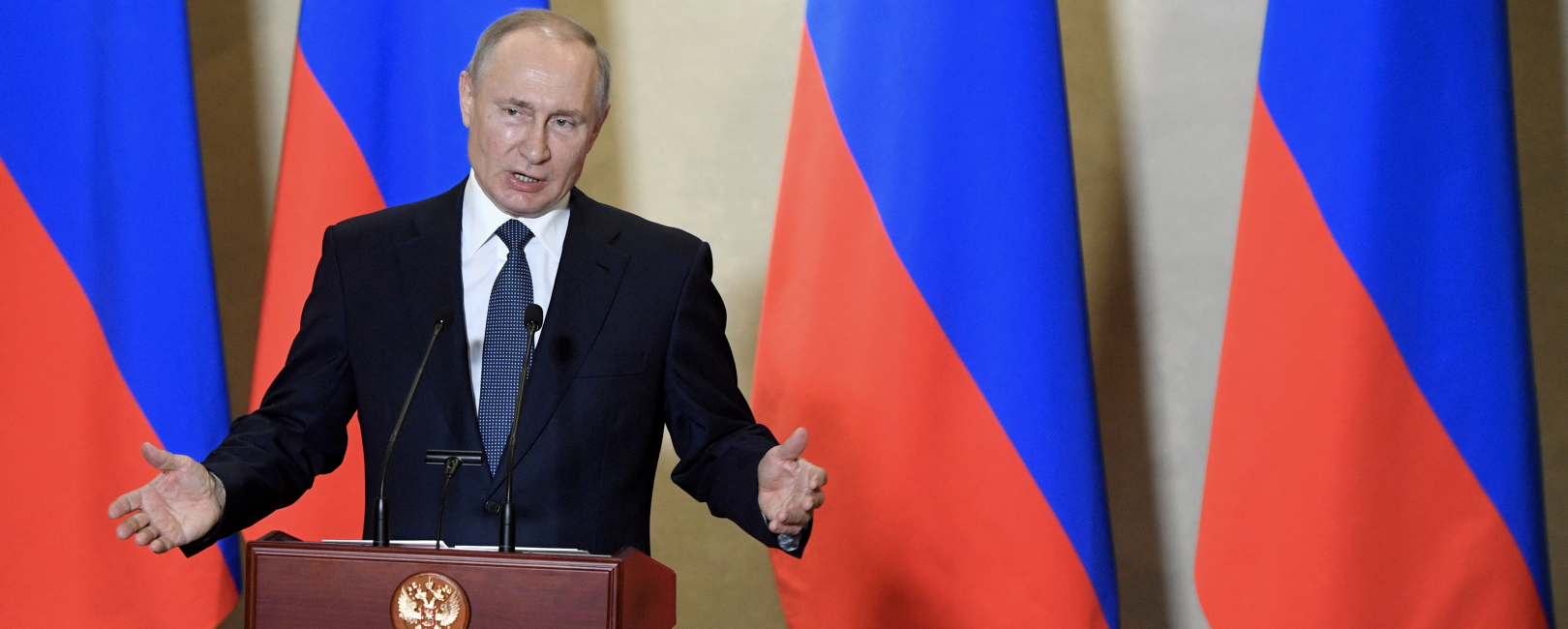By DFRLab
At least five narratives emerged on Russian outlets and social media, following a well-established playbook
A number of pro-Kremlin and Kremlin-funded outlets spread various disinformation narratives accusing the United States of intentionally spreading an allegedly fake story about the Kremlin offering the Taliban bounties to kill U.S. and British servicemembers. The narratives appeared on fringe media outlets before migrating to state-sponsored propaganda outlets like RT and Sputnik, which were then spread on Russian social networks.
Citing U.S. intelligence assessments, The New York Times broke the story on June 26 that Russia had secretly offered bounties to Taliban-linked militants in exchange for killing U.S. soldiers in Afghanistan. The story received widespread attention and was further corroborated by The Washington Post, as well as several other major media outlets. While President Donald Trump pushed back on the report, Speaker of the House Nancy Pelosi called for sanctioning Russia because of it.
Though several questions about the allegations remain unanswered, pro-Kremlin and Kremlin-owned outlets have blamed the United States — without evidence — for intentionally planting and spreading the story to justify the imposition of additional sanctions on Russia.
Five disinformation narratives accusing the United States
The Kremlin often employs shifting, and at times conflicting, disinformation narratives in an effort to sow confusion. This strategy was in plain view after the downing of Flight MH17 and the Skripal poisonings. Following the Taliban bounties story, the DFRLab identified five different disinformation narratives at work:
1. The United States is waging an information war against Russia and merely searching for an excuse to impose sanctions on Moscow.
The pro-Kremlin outlet Vzglyad.ru claimed that the Taliban story is the latest saga in the U.S. information war against Russia and is setting the stage for another round of sanctions. The outlet assessed the story to be a case of “information provocation,” dismissing it as if had been planned “in the spirit of the Third Reich” and “according to Goebbels’ recipe.” According to Vzglyad.ru, the investigation is designed for the “primitive brains” of the U.S. population, with the ultimate goal of casting Russia as the mortal enemy of the United States in order to consolidate the “crumbling American nation.” In order to “prove” that Washington had wielded the Taliban against Moscow since the Soviet era, the article referred to the movie “Rambo III,” saying that the film clearly shows the close connections between the United States and Taliban.
Referring to the investigation as “a fake story” invented by U.S. journalists, RT accused the “American elite,” including law enforcement agencies as well as NATO, of being “in a completely unbalanced state,” as evidenced by them taking “outright fakes” seriously.
Another pro-Kremlin outlet, Politexpert.net, published an interview with Michael Bohm, a U.S. journalist residing in Russia who is a regular guest on pro-Kremlin TV political programs. The outlet claimed that Bohm had said that the narrative about Russia’s supposed collusion with the Taliban is being used to influence the U.S. public and turn it against Moscow. Pro-Kremlin media often rely on independent “experts” or foreign journalists like Bohm to push pro-Kremlin talking points, in an effort to cast themselves as objective news outlets.

2. The United States is supporting terrorist and radical groups.
While denying the financing of the Taliban by Russia, some Kremlin platforms accused the United States of funding terrorist groups. Russian state outlet Sputnik alleged the U.S. had financed the Islamic State as well as the Taliban, allegedly helping the latter open up an office in Qatar. Sputnik also accused the United States of hypocrisy, saying that it had helped the jihadists establish a presence in Qatar while letting U.S. and NATO soldiers die at their hands at the same time.
Fringe outlet Sevastopol.su invoked Cold War history, claiming that the United States and its “Middle Eastern satellites” had tried to crush the Soviet empire in Afghanistan before, and in doing so did not hesitate to support radical Islamism on the ground. The outlet insinuated that the U.S. continues to support terrorism in the present day.

3. It is part of the Democratic Party’s election campaign strategy.
Vzglyad.ru and RTpublished stories accusing the U.S. Democratic party of spreading “a fake story” about Russian ties with the Taliban in order to use it in their election campaign and to discredit and bring down Trump. At the same time, fringe Russian outlet Fergana.news claimed that Democrats had actively accused Trump of knowing about the Afghanistan case while not taking the necessary measures to counter the operations of the Russian special services in Afghanistan. These allegations, the outlets claimed, have become one of the Democratic Party’s main points of influence with potential voters.

4. U.S. government agencies are involved in corruption and drug trafficking in Afghanistan.
Rg.ru claimed that some members of Congress and other influential officials in Washington had kept quiet on the revelations because of their own involvement in corruption schemes in Afghanistan over the past 20 years. The outlet claimed that the U.S. Departments of and Defense, as well as the U.S. Agency for International Development had participated in fraud and corruption schemes in Afghanistan as well.
Russian officials, meanwhile, joined the chorus of pro-Kremlin voices that alleged U.S. intelligence involvement in drug trafficking in Afghanistan. Vladimir Putin’s Special Representative for Afghanistan Zamir Kabulov reportedly said that “this is known to every Afghan in Kabul.”

5. The story is a cover-up for the U.S. failure in Afghanistan.
The accusations against the United States spread to the Russian social network VKontakte (VK) as well. Several VK accounts spread excerpts of video footage from Kremlin political talk shows in which Washington was “named and shamed” for its Afghanistan policy failure. According to this narrative, the United States had to justify the fiasco that was its intervention in Afghanistan and, in an effort to do so, shifted the focus to Russia. In one of the circulating videos, the Taliban bounty story was assessed as the “same nonsense” as the claims that Russians had poisoned people on European soil — a reference to the 2018 poisoning of Sergei and Yulia Skripal, widely believed to have been ordered by the Kremlin, in the United Kingdom.

The stories, though, have so far met with relatively limited traction. A BuzzSumo analysis of the articles showed that the most engaged narratives were the ones spread on vz.ru, followed by Sputnik, though neither appears to have had significant reach. The articles on fringe outlets RT, meanwhile, had close to zero engagement.

Pro-Kremlin outlets deployed these distinct disinformation narratives about the Taliban bounty story in the aftermath of The New York Times investigation. As the majority of these outlets highlighted the importance of the story leading up to the U.S. elections, the topic may continue to be a focus of future disinformation efforts.
Eto Buziashvili is a Research Associate, Caucasus, with the Digital Forensic Research Lab.
By DFRLab





